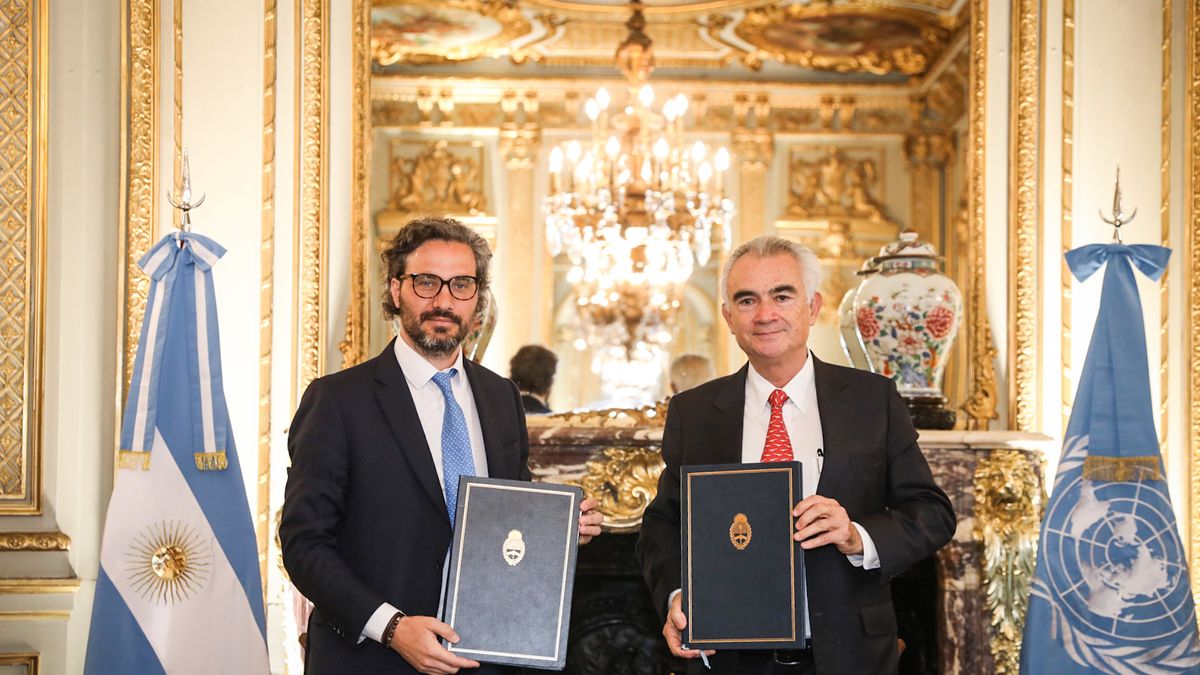The Costa Rican economist gave a conference together with Foreign Minister Santiago Cafiero at the Palacio San Martín. In this framework, the international context appeared recurrently. The events that have occurred since the beginning of 2020 with the pandemic, then the post-pandemic difficulties that included cuts in the supply chain and the armed conflict, which increased the prices of food and energy, set up a scenario of strong restrictions in the region.
Last week at the Assemblies of the International Monetary Fund and the World Bank, the countries discussed at length the strategies for how to deal with inflation. For the executive director of ECLAC, “the discussion is whether raising rates is the only tool and how far to do it so that there is no overshooting that leads to a higher recession.” Along these lines, he argued that “there is a supply shock and there are macroprudential policies that could be implemented, there are issues that could be addressed through the banking system and financial regulations.”
Despite the fact that the high degree of complexity that the world economy is going through was present in each section of the talk, Salazar affirmed that “the light is seen at the end of the tunnel in the sense that there are signs that the prices of some products are starting to to go down So it is possible that the need to continue raising rates in the first or second half of 2023 will not be as strong.
The event in which Argentina will assume the Pro Tempore Presidency of ECLAC will take place this Monday at the Kirchner Cultural Center and will be attended by renowned economists Joseph Stiglitz and Mariana Mazzucato. A recorded message by the Secretary of the United Nations, António Guterres, will also be broadcast. With this framework, an extensive analytical document will be presented containing recommendations to face the current situation that is described as “a cascade of crises”.
The Commission predicts a “not easy” 2023, even pointing out that the situation will be tougher than that of 2022 since “the debt of the countries has grown, we come from fiscal reactions and the programs to mitigate the impacts of the pandemic that reduce the room for fiscal expansion. In its latest report, it cut growth prospects for the coming year and predicted an expansion of only 1.4% in the countries of the region.
Role of multilateral organizations
Before the consultation of this medium, Salazar Xirinachs considered that the multilateral organizations should review the current programs with the countries due to the changes that the war introduced in the global economy. “It was a big part of the conversation with the IMF and the World Bank, many governments asked to improve the international financial architecture and expand resources. An effort has been made, but when one sees the numbers of needs compared to what has been added up to now, one realizes that there is a lot missing,” he said.
Along these lines, he maintained that “since the pandemic, the IMF has changed, there is much more flexibility, they are not the same policies as before Covid-19. There is a long way, it is a conversation that is happening and Latin America has a structural problem of a low rate of public investment, it has one of the lowest as a region”.
In addition, he highlighted the role of development banks: “they are essential because they are a critical mass of resources,” he said. Along the same lines, he supported the proposal that the Minister of Economy, Sergio Massa, launched on his last tour to capitalize them, maintaining that it would be an important step and that “it is on the agenda.”
Axes of the sessions
Within the agenda that will unfold from Monday, growth appears as a central issue. According to the Executive Director of ECLAC, “in the last 30 years the productivity of Latin America has hardly increased.” We have to bet on growth.” In this line, there will be talks about sectoral policies linked to the energy transition and the circular economy.
Among the agency’s recommendations, the search for relief in sovereign debts via restructuring and also the need for tax reforms will be put on the table. Another of the main axes will be a change of concept that the Government points out as fundamental, from efficient supply chains to safe supply chains. The region seeks to position itself as a territory of peace that can provide a stable supply of food, energy and minerals, among other products.
Source: Ambito
David William is a talented author who has made a name for himself in the world of writing. He is a professional author who writes on a wide range of topics, from general interest to opinion news. David is currently working as a writer at 24 hours worlds where he brings his unique perspective and in-depth research to his articles, making them both informative and engaging.




